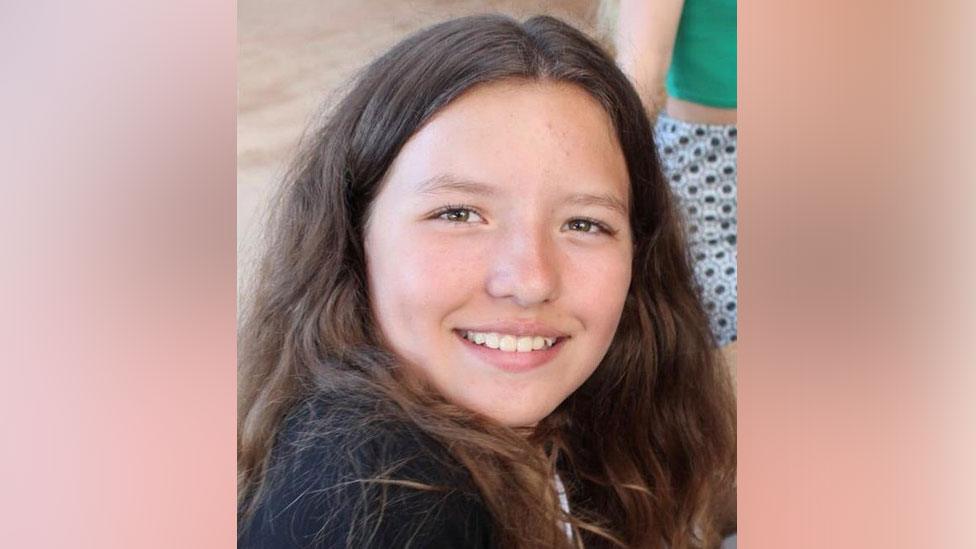Lily Wythe: 'Brave' teenager dies from 'cruel' brain tumour
- Published

Lily Wythe was diagnosed with brain cancer in September
A 14-year-old girl for whom £300,000 was raised so she could undergo brain tumour treatment abroad has died.
Lily Wythe, of Essex, was diagnosed with brain cancer in September.
An online campaign was set up by her best friend Lillie Cotgrove to raise money to fund medical treatment at Seattle Children's Hospital. The fundraising target was met in January.
Her family announced on Facebook, external the death of their "beautiful brave Lily" after she suffered a "huge seizure".

Flowers have been left outside Lily's school
Hundreds of people have left messages of support on the social media site for the fundraising campaign called One Pound Warriors, external.
One person wrote: "You fought a heavy battle you brave girl... May the angels be with you and comfort you."
Another said: "RIP beautiful Lily. You stayed strong and are a real inspiration to everyone."
Yellow flowers have been left outside Lily's school, The Eastwood Academy in Leigh-on-Sea.
Allow Facebook content?
This article contains content provided by Facebook. We ask for your permission before anything is loaded, as they may be using cookies and other technologies. You may want to read Meta’s Facebook cookie policy, external and privacy policy, external before accepting. To view this content choose ‘accept and continue’.
On the school's website, it says: "It is with great sadness that we recently learned of the passing of Lily.
"Her loss marks a very sad day for all those who knew her. Our thoughts are with her family and friends during this very difficult time. Rest in peace now #bravelily."
Lily, who had an inoperable diffuse intrinsic pontine glioma (DIPG) brain tumour, external, died on Saturday.
Brain Tumour Research, which worked with Lily's family to raise awareness of the campaign, said there was a "lack of funding for research for this most cruel of childhood cancer diagnoses".
Spokesman Hugh Adams said: "We cannot let this situation continue to happen. Families simply should not be placed in the hideous situation of having to raise hundreds of thousands of pounds, and seek treatment abroad."
He said Lily's story "spurs us on to work ever more resolutely to raise funds for research" and to campaign for the government and the larger cancer charities to invest more.